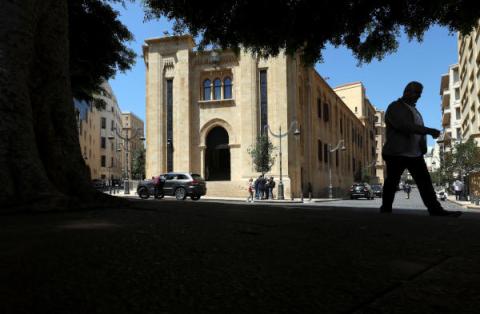
Despite continuous assertions by Shiite political figures and forces – led by Iraqi Prime Minister Haidar al-Abadi – on holding the parliamentary elections in mid-May, Sunni political figures insist on postponing the elections due to the absence of required conditions in Sunni provinces that were ruled by ISIS for around three years.
Several parties, including the UN and its mission to Iraq, are concerned over the lack of conditions to hold elections on its specific date. Special representative of the UN for Iraq Jan Kubis, in his report to the Security Council last week, said that the newly assigned council for Iraqi elections had a tough mission ahead.
Kubis sees that the council, that should completely comply with the constitution and hold the elections on time, “faces several challenges including the use of a new voting technology and holding two election processes (the parliament and the local councils) simultaneously and within a tight timeline and complex electoral laws.”
He further pointed to the security challenges, especially issues pertaining to the return of displaced people and urged Iraqi parties to confront these challenges in the coming months. In his report, before the Security Council, he declared that “holding elections while some parts of Iraq remain unsafe with large numbers of its citizens still displaced (namely from the Sunnis) may raise doubts about the credibility and comprehensiveness of elections.”
Media and political parties considered the last part of Kubis statement a call for postponing the elections.
Other deputies on the Iraqi National List share same concerns with the UN regarding the absence of required conditions for holding elections. Among them is Abdul Karim Abtan who told Asharq Al-Awsat that he agreed with on-time elections but “the question is, will the government provide these conditions?”
Abtan listed the conditions to be provided, saying they were the same conditions stated by the PM when he set mid-May as a deadline for elections. These include the return of displaced persons, the provision of a suitable environment, the non-participation of armed groups in the elections and a free and fair e-election system," he stated.












